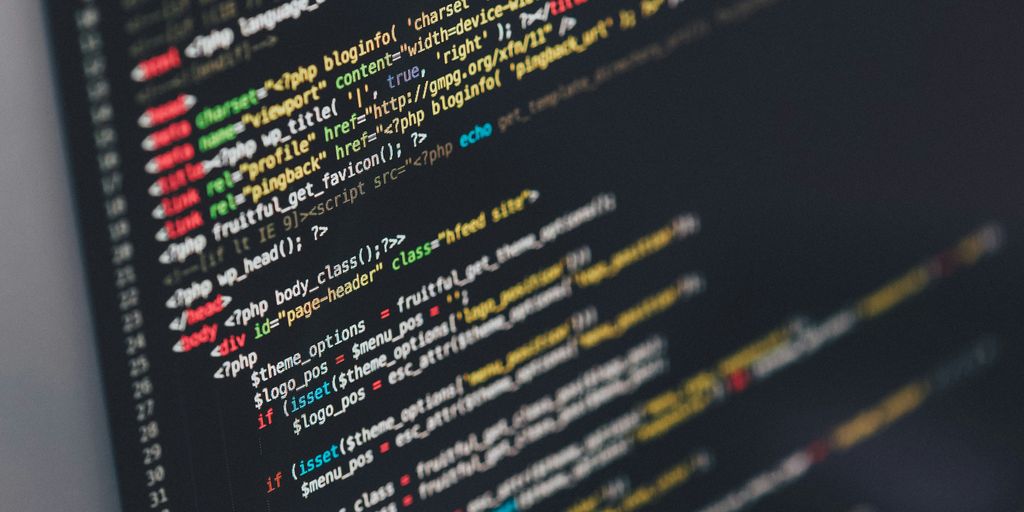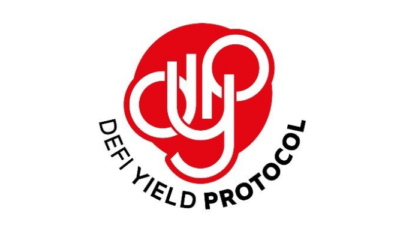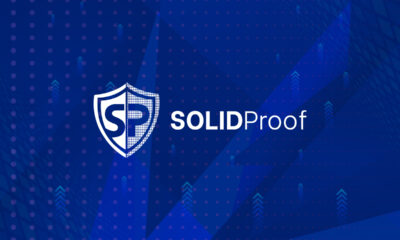Artificial Intelligence
How Blockchain is Revolutionising Healthcare

Blockchain technology is changing the way healthcare works. By giving patients more control over their medical records and improving data security, blockchain is making healthcare safer and more efficient. This article explores how blockchain is transforming various aspects of healthcare, from patient ownership of records to enhancing research and development.
Key Takeaways
- Patients can control who sees their medical records using blockchain.
- Travellers can access their health records anywhere in the world.
- Researchers can share data securely, speeding up medical discoveries.
- Blockchain helps keep medical data safe from tampering.
- It improves communication between different healthcare systems.
Patient Ownership and Control of Medical Records
Empowering Patients Through Smart Contracts
With blockchain technology, patients can take charge of their medical records. They can use smart contracts to decide who can see their data and when. This means that patients are more involved in their healthcare decisions.
Enhancing Privacy Rights
Blockchain also helps protect patient privacy. By controlling access to their records, patients can feel safer knowing that their sensitive information is only shared with trusted healthcare providers. This control is crucial in today’s digital age.
Secure Data Access for Healthcare Providers
Healthcare providers can access patient data securely and efficiently. This is important for providing timely care, especially in emergencies. With blockchain, the process of sharing information becomes faster and more reliable, ensuring that doctors have the right data when they need it.
Blockchain technology supports patient-controlled health records, where individuals decide who can access their data and under what conditions.
In summary, blockchain is changing how patients manage their medical records, giving them more power and ensuring their privacy is respected. This shift not only benefits patients but also enhances the overall efficiency of healthcare delivery.
Global Health Records for Travellers
Unified Health Records Across Borders
With the rise of blockchain technology, patients can now have a unified health record that is accessible from anywhere in the world. This is especially beneficial for frequent travellers who may need medical attention in different countries. By using blockchain, medical records can be securely stored and shared, ensuring that healthcare providers have immediate access to a patient’s medical history when needed.
Emergency Access to Medical History
In emergencies, having quick access to a patient’s medical history can be a matter of life and death. Blockchain allows for instant access to critical health information, such as allergies, medications, and previous treatments. This can significantly improve the quality of care provided in urgent situations.
Benefits for Frequent Travellers
Frequent travellers can enjoy several advantages from blockchain health records:
- Seamless access to medical records across borders.
- Improved communication between healthcare providers in different countries.
- Enhanced patient safety through accurate and up-to-date medical information.
Blockchain is paving the way for a more connected and efficient healthcare system, especially for those who travel frequently. It ensures that vital health information is always at hand, no matter where you are in the world.
By leveraging blockchain, the healthcare industry can create a more integrated approach to managing health records, ultimately benefiting patients and providers alike.
Blockchain in Research and Development
Facilitating Secure Data Sharing
Blockchain technology allows researchers to share data securely and efficiently. This is crucial in healthcare, where sensitive information must be protected. By using blockchain, researchers can ensure that data is only accessible to authorised individuals.
Collaborative Research Efforts
With blockchain, multiple institutions can collaborate on research projects without compromising data integrity. This technology enables:
- Real-time data sharing among researchers.
- Transparent tracking of contributions from different parties.
- Streamlined processes for approvals and data access.
Accelerating Medical Discoveries
Blockchain can speed up the process of medical research by:
- Reducing time spent on data verification.
- Enhancing trust among collaborators.
- Facilitating faster patient recruitment for clinical trials.
Blockchain is transforming how research is conducted, making it more efficient and secure. This shift not only benefits researchers but also leads to quicker advancements in medical science.
| Benefit | Description |
|---|---|
| Enhanced Security | Protects sensitive data from unauthorised access |
| Improved Collaboration | Fosters teamwork across institutions |
| Faster Discoveries | Speeds up research timelines |
Enhancing Data Security in Healthcare
In the healthcare sector, data security is of utmost importance. Blockchain technology offers a robust solution to enhance the security of medical records and patient information.
Decentralised and Cryptographic Record-Keeping
- Decentralisation: Unlike traditional systems, blockchain does not rely on a single authority. Instead, it uses a network of computers, making it more resilient to failures and less prone to manipulation.
- Cryptographic Security: Each record is encrypted, ensuring that only authorised users can access sensitive information.
- Immutability: Once data is added to the blockchain, it cannot be altered or deleted, which is crucial for maintaining the integrity of medical records.
Immutable Data Entries
- Permanent Records: All entries on the blockchain are permanent, which deters fraudulent activities and unauthorised changes.
- Audit Trails: The transparent nature of blockchain allows for easy tracking of all transactions, providing a clear audit trail for compliance and accountability.
- Patient Trust: Knowing that their data is secure and unchangeable can enhance patient trust in healthcare providers.
Preventing Unauthorised Alterations
- Access Control: Patients can control who accesses their data through smart contracts, ensuring that only authorised personnel can view sensitive information.
- Real-Time Monitoring: Any attempt to alter data can be detected immediately, allowing for swift action to prevent breaches.
- Enhanced Privacy: By limiting access to data, blockchain helps protect patient privacy, which is essential in healthcare.
The integration of blockchain in healthcare is not just about technology; it’s about creating a secure environment where patient data is protected and trust is built between patients and providers.
By leveraging blockchain, the healthcare industry can significantly improve its data security, ensuring that patient information remains confidential and secure.
Improving Interoperability in Healthcare Systems

In the healthcare sector, interoperability is essential for ensuring that different systems can work together effectively. This means that doctors, hospitals, and labs can share information seamlessly, which is crucial for providing quality care. Here’s how blockchain technology can help:
Seamless Communication Across Platforms
- Blockchain allows various healthcare systems to communicate without barriers.
- It creates a standardised way to share data, making it easier for different systems to understand each other.
- This leads to quicker access to patient information, improving overall care.
Addressing Patient Identification Issues
- One major problem is the lack of a universal patient identifier, which can lead to errors in records.
- Studies show that 20% of patient records have inaccuracies, which can rise to 50% when data is shared across systems.
- Blockchain can help create a reliable way to identify patients, reducing confusion and errors.
Overcoming Information Blocking
- Some hospitals may withhold data due to competitive reasons, which can hinder patient care.
- Blockchain reduces the motivation for this by making data more accessible.
- This encourages collaboration among healthcare providers, leading to better patient outcomes.
Blockchain technology is paving the way for a more connected healthcare system, where data flows freely and securely between all parties involved.
By improving interoperability, blockchain not only enhances patient care but also streamlines operations, making healthcare more efficient and effective.
Streamlining Revenue Cycle and Fraud Prevention
High-Integrity Tracking Capabilities
Blockchain technology offers high-integrity tracking capabilities that ensure every transaction is recorded accurately. This transparency helps in identifying discrepancies and reduces the chances of fraud. Key benefits include:
- Real-time tracking of transactions
- Audit trails that are easy to follow
- Enhanced accountability among stakeholders
Reducing Administrative Costs
By automating processes through blockchain, healthcare organisations can significantly lower their administrative costs. This is achieved by:
- Minimising paperwork and manual entry errors
- Streamlining billing processes
- Reducing the need for intermediaries
Minimising Financial Errors
Blockchain helps in minimising financial errors by providing a secure and transparent platform for transactions. This leads to:
- Fewer billing disputes
- Accurate claims processing
- Improved financial reporting
Blockchain technology is not just a trend; it is a game-changer for the healthcare industry, paving the way for a more efficient and secure revenue cycle.
In summary, the integration of blockchain in healthcare can transform the revenue cycle by enhancing tracking, reducing costs, and minimising errors, ultimately leading to a more efficient system.
Optimising Network Contract and Performance Management
Cross-Partner System Integration
Blockchain technology is transforming how healthcare organisations manage contracts and performance. By integrating systems across different partners, it allows for a more streamlined approach. This integration leads to better communication and efficiency.
- Improved Collaboration: Partners can work together more effectively, sharing data securely.
- Real-Time Updates: Changes in contracts or performance metrics can be updated instantly, reducing delays.
- Enhanced Trust: With transparent records, all parties can verify information without needing a central authority.
Scalable Blockchain Architecture
The architecture of blockchain is designed to grow with the needs of healthcare organisations. This scalability is crucial for accommodating increasing data and user demands.
| Feature | Description | Benefits |
|---|---|---|
| Scalability | Ability to handle more transactions as needed | Supports growth and expansion |
| Flexibility | Can adapt to various healthcare applications | Custom solutions for different needs |
| Security | Uses cryptographic methods to protect data | Reduces risk of data breaches |
Enhancing Organisational Efficiency
By optimising network contracts, organisations can significantly improve their overall efficiency.
- Reduced Administrative Burden: Automating contract management cuts down on paperwork.
- Faster Decision-Making: With all data accessible in real-time, decisions can be made quickly.
- Cost Savings: Streamlined processes lead to lower operational costs.
Blockchain technology is not just about security; it’s about creating a more efficient and transparent healthcare system.
In conclusion, optimising network contract and performance management through blockchain can lead to a more effective healthcare system, benefiting both providers and patients. The future of healthcare relies on these innovative solutions.
Blockchain for Quality Medicine and Supply Chain Management
Monitoring Drug Quality
Blockchain technology is changing how we ensure the quality of medicines. By using a secure and transparent system, we can track drugs from the manufacturer to the pharmacy. This helps in:
- Ensuring that drugs are stored at the right temperature and conditions.
- Preventing the sale of expired drugs.
- Reducing the chances of fraud in the supply chain.
Preventing Fraud and Expired Drugs
With blockchain, every transaction is recorded in a way that cannot be changed. This means that:
- Each drug’s journey can be traced.
- Buyers can verify the authenticity of the drugs.
- It becomes harder for counterfeit drugs to enter the market.
Secure Global Supply Chains
The use of blockchain creates a secure global supply chain. This is important because:
- It allows for real-time monitoring of drug conditions.
- It enhances trust among all parties involved, from manufacturers to consumers.
- It helps in quick responses to any issues that arise, ensuring patient safety.
Blockchain is not just a trend; it is a revolutionary technology that can reshape how we manage healthcare supply chains.
By implementing these systems, we can ensure that patients receive safe and effective medications, ultimately improving healthcare outcomes.
Challenges and Considerations for Blockchain Adoption
While blockchain holds great promise for healthcare, there are several key challenges that need to be addressed before widespread adoption can occur. Here are some of the main considerations:
Regulatory Compliance
- Understanding Regulations: Healthcare organisations must navigate complex regulations that govern patient data and privacy.
- Adapting to Changes: As blockchain technology evolves, regulations may also change, requiring continuous adaptation.
- Ensuring Compliance: It is crucial to ensure that blockchain solutions comply with existing laws to avoid legal issues.
Integration with Existing Systems
- Compatibility Issues: Many healthcare systems are outdated, making integration with blockchain difficult.
- Training Staff: Healthcare professionals will need training to effectively use new blockchain systems.
- Cost of Transition: The financial burden of transitioning to blockchain can be significant for many organisations.
Scalability and Energy Consumption
- Network Scalability: As more users join the blockchain, maintaining performance can become challenging.
- Energy Use: Some blockchain platforms consume a lot of energy, raising concerns about sustainability.
- Long-Term Viability: The long-term viability of blockchain solutions must be assessed to ensure they can grow with the industry.
Blockchain has the potential to transform healthcare, but careful planning and consideration of these challenges are essential for successful implementation.
In summary, while blockchain offers numerous benefits, addressing these challenges is vital for its successful integration into healthcare systems. By focusing on regulatory compliance, system integration, and scalability, healthcare organisations can better prepare for the future of blockchain in their operations.
Blockchain’s Role in Contract Negotiations
Streamlining Rebate Negotiations
In the healthcare sector, contract negotiations can often become complicated and time-consuming. Blockchain technology simplifies this process by enabling a more efficient way to manage contracts. For instance, platforms like Curisium leverage blockchain to facilitate rebate negotiations, allowing both providers and payers to engage in innovative contracting arrangements.
Innovative Contracting Arrangements
With blockchain, healthcare organisations can create contracts that are not only secure but also adaptable. This technology allows for:
- Real-time updates to contract terms.
- Automatic execution of agreements through smart contracts.
- Transparent tracking of contract performance.
Reducing Time and Complexity
The use of blockchain can significantly cut down the time spent on negotiations. By providing a clear and immutable record of all transactions, it reduces misunderstandings and disputes. This leads to:
- Faster agreement finalisation.
- Lower administrative burdens.
- Enhanced trust among parties involved.
Blockchain technology is transforming how healthcare organisations negotiate contracts, making processes more efficient and transparent.
In summary, blockchain is paving the way for a new era in contract negotiations within healthcare, ensuring that all parties can operate with confidence and clarity.
Fostering Innovation in Hospital Networks

Connecting Large Hospital Networks
Blockchain technology is paving the way for better connections among hospitals. By using a shared digital ledger, hospitals can communicate more effectively, ensuring that patient data is accessible and secure. This leads to improved patient care and faster decision-making.
Patient-Centric Data Networks
With blockchain, patient data can be stored in a way that puts the patient first. This means that patients have more control over their own health information. They can share their data with healthcare providers when needed, ensuring that they receive the best possible care.
Future-Proof Blockchain Foundations
The use of blockchain in healthcare is not just a trend; it’s a long-term solution. By building on a flexible and scalable blockchain foundation, hospitals can adapt to future changes in technology and patient needs. This ensures that they remain at the forefront of healthcare innovation.
Blockchain technology is transforming how hospitals operate, making them more efficient and patient-focused.
In summary, blockchain is revolutionising hospital networks by:
- Enhancing communication between hospitals.
- Empowering patients with control over their data.
- Providing a robust framework for future advancements.
By integrating blockchain, hospitals can create a more connected and efficient healthcare system, ultimately benefiting both patients and providers.
Creating Secure and Transparent Networks
In the healthcare sector, creating secure and transparent networks is essential for protecting patient data and ensuring trust among stakeholders. Blockchain technology offers a robust solution to achieve this by leveraging its unique features:
State-of-the-Art Security Solutions
- Decentralisation: There is no single point of failure, making the system more resilient.
- Cryptographic Protection: Data is encrypted, ensuring that only authorised users can access it.
- Immutability: Once data is recorded, it cannot be altered, which prevents fraud.
Secure Data Sharing
- Transparency: All transactions are visible to participants, fostering trust.
- Pseudonymity: Users can interact without revealing their identities, enhancing privacy.
- Standardised Protocols: Blockchain allows different systems to communicate seamlessly, improving data exchange.
Limiting Attack Possibilities
- High Integrity Tracking: Every transaction is recorded, making it easy to trace any issues.
- Robust Network: The distributed nature of blockchain makes it difficult for attackers to compromise the system.
- Continuous Monitoring: Real-time tracking of data access helps in identifying potential threats quickly.
Blockchain technology not only enhances security but also promotes a culture of transparency and trust in healthcare, which is vital for patient care and collaboration among providers.
By implementing these features, healthcare organisations can create networks that are both secure and transparent, ultimately leading to better patient outcomes and more efficient operations.
Conclusion
In summary, blockchain technology is set to change the healthcare landscape significantly. By putting patients at the heart of the system, it enhances data security and gives individuals more control over their medical records. This technology not only makes it easier to share information among healthcare providers but also helps in creating a unified health record that can be accessed globally. Although there are challenges to overcome, such as integrating blockchain with existing systems and ensuring data privacy, the benefits it brings are immense. As we move forward, embracing blockchain could lead to a more efficient, transparent, and patient-focused healthcare system.
-

 Press Release4 days ago
Press Release4 days agoClinical Trials Market Set for Robust Growth, Driven by Drug Development Surge and Digital Innovation
-

 Press Release6 days ago
Press Release6 days agoBellarium ($BEL) Price Prediction: Could It Hit $5 by 2026?
-

 Press Release5 days ago
Press Release5 days agoIndustrial Boiler Market Expected to Surpass USD 24.4 Billion by 2035 Amid Growing Demand for Energy Efficiency and Industrialization
-

 Business6 days ago
Business6 days agoHow Managed IT Solutions Help Small Teams Compete at Enterprise Scale
-

 Press Release5 days ago
Press Release5 days agoPreventive Vaccines Market to Witness Strong Growth by 2035
-

 Press Release5 days ago
Press Release5 days agoGreen Bio Chemicals Market Poised for Sustainable Growth amidst Global Shift to Eco-Friendly Alternatives by 2035
-

 Press Release5 days ago
Press Release5 days agoFill-Finish Pharmaceutical Contract Manufacturing Market Expected to Flourish Amid Biopharmaceutical Boom and Global Outsourcing Trend by 2035
-

 Press Release5 days ago
Press Release5 days agoPet Food Nutraceutical Market Set for Robust Expansion Amid Rising Demand for Pet Wellness by 2035






























